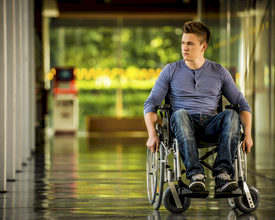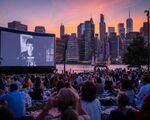People with a disability would also love to come to your event. Do you have to make extra investments for that? Sometimes you do, sometimes you don't or only very little. Here you can find an overview of what you can do to make it more attractive for these guests and to make it easier to enjoy your event.
One thing which doesn't cost you anything at all is providing clear information about the accessibility of your event. You should also announce it if your venue, attraction or part of it is not accessible. An important element: is there parking space nearby? You should definitely check this and explicitly mention it in your information.
Supervision
- Explicitly state whether assistance dogs are allowed.
- You should specifically arrange a welcome party for people with a handicap.
- Arrange for discounts or free access to supervisors.
- Or you can engage staff or volunteers to supervise the handicapped.
- Train your personnel to handle people with a disability in a correct and dignified way. Think about situations such as:
- How do you talk to an attendee who himself/herself has difficulties talking?
- How do you deal with people in a wheelchair?
- What to do in case of emergencies or calamities?
Wheelchair users
- When selecting a location, you should take accessibility into account. If necessary, use a checklist when you visit the venue. You should request information from the venue about accessibility, tips for wheelchair users and photos which show what kind of facilities or obstacles wheelchair users can expect.
- When you are organising a performance, make sure that wheelchair users are able to see the stage. Either place a wheelchair podium or demarcate a wheelchair-only zone near the stage.
- Try to make all barriers more accessible with ramps. You can often borrow or rent these from specialised organisations.
- If you also offer accommodations with your event, try to book a hotel with accessible rooms and check whether these are actually available.
- If you arrange transportation, remember to book accessible shuttle buses.
The blind and the near-sighted
- Provide sign-posts with braille or audio assistance.
- Make sure you print with large typography and sharp colour contrasts, and try to print on matt paper.
- Train your personnel to speak and articulate clearly. When you write a route description, an explicit explanation works best. Example: 'the toilets are behind you and just a few steps to the right'. Instead of pointing with your finger and only say: 'over there'.
- Ask your speakers and hosts whether they can briefly describe the images in their presentations.
- Is your website accessible to the blind and the visually impaired? Is it just as easy for them to subscribe or order tickets? Consult the international guidelines on accessibility of websites https://www.w3.org/Translations/WCAG20-nl/
The deaf and the hearing-impaired
- Provide sign language interpreters and make sure you position the interpreters in plain sight.
- Ask your speakers to stand straight in front of the audience or to look directly into the camera. This facilitates lip-reading.
- Ask your speakers to always speak into the microphone, not too quickly and not too softly. And tell them to regularly pause, so the interpreters and audio systems can do their jobs.
- Always provide reading material during discussions and group debates.
- Make sure there is as little background noise as possible.







